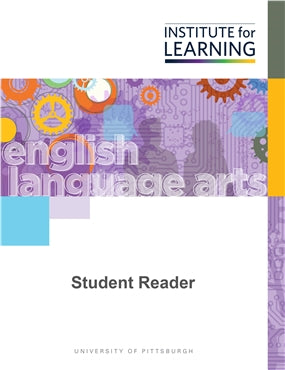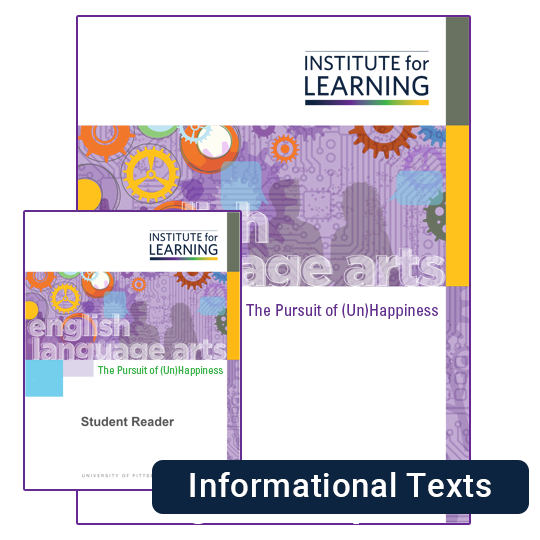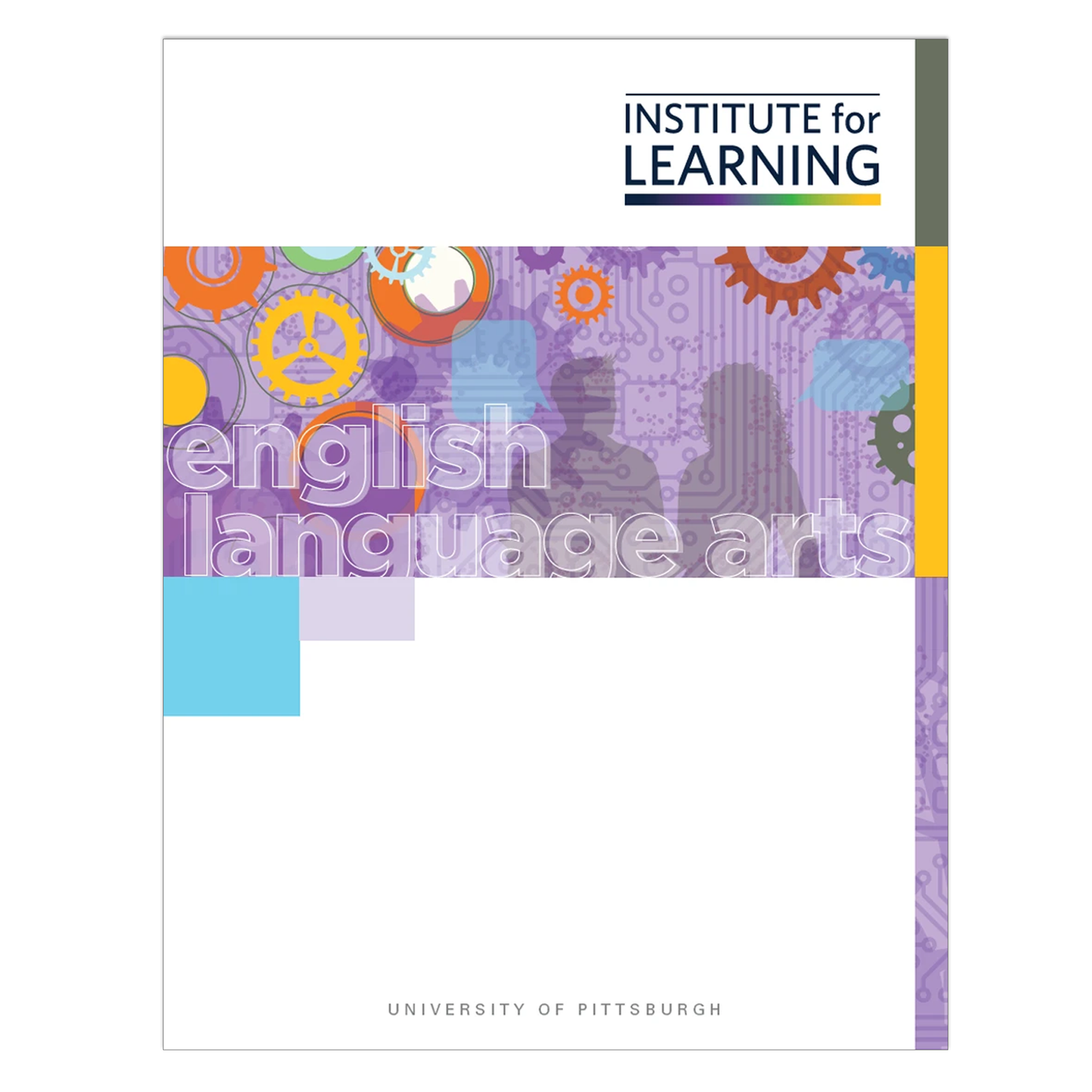Institute for Learning
The Pursuit of (Un)Happiness (Grades 9-11)
The Pursuit of (Un)Happiness (Grades 9-11)
Couldn't load pickup availability
- Two informational texts
- 2-3 weeks instruction
- Argument writing
What is this unit about?
In this unit, students read two texts: “Does Trying to Be Happy Make Us Unhappy?” by Adam Grant and “Pursuing the Science of Happiness” by Andrew Guest. Both Grant and Guest explore the concept of happiness and the impact that the pursuit of happiness has on the pursuer. They do this by drawing conclusions from research about the science of happiness and from personal experience or a narrative case.
In “Does Trying to Be Happy Make Us Unhappy?” Grant, a scholar of organizational psychology, situates his ideas and research within the narrative case of “Tom.” He discusses the four errors Tom has made in his pursuit of happiness and the effects of those errors in Tom’s achieving happiness. In “Pursuing the Science of Happiness,” Guest, a psychology professor and researcher at the University of Portland, discusses the complex nature of the concept of happiness. Guest frames the text with his personal experience and that of his students, and anchors his ideas within research about happiness and its pursuit.
Together, these two articles lead students to think about the idea of happiness, what it means to pursue and/or acquire this complex and elusive concept, and the relationships among happiness, meaningfulness, pleasure, and quality of life. Additionally, students study the methods that these two writers use to explain and support their ideas in order for students to expand their understanding of how to construct effective explanatory texts of their own.
What content and concepts will students learn?
Students will learn about:
- the concept of happiness.
- the impact of the pursuit of happiness on achieving happiness.
- the science supporting different perspectives on happiness and its pursuit.
- the relationships among happiness, pleasure, meaningfulness, and quality of life.
- how writers explain and support their ideas to construct effective explanations.
- how writers use different kinds of evidence in their explanatory texts.
How long will it take to engage students in the unit?
This unit spans approximately 12-16 instructional days, assuming a 45- to 60-minute class session. The tasks in the unit are designed to be implemented sequentially in order to support students to achieve the instructional goals. As such, the pacing of the lessons will depend on the time students need to achieve these goals.





